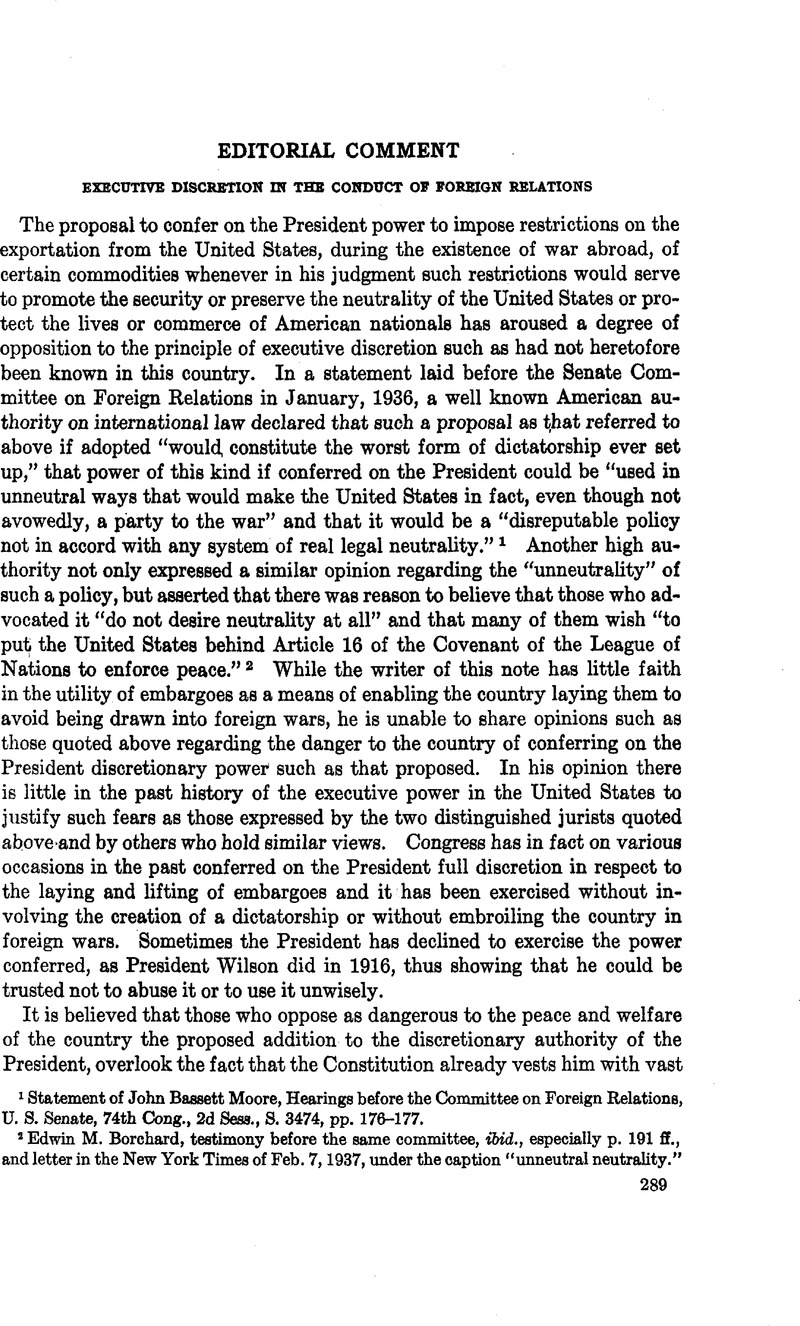Published online by Cambridge University Press: 12 April 2017

1 ’ Statement of John Bassett Moore, Hearings before the Committee on Foreign Relations, U. S. Senate, 74th Cong., 2d Sess., S.3474, pp. 176–177.
2 Borchard, Edwin M. , testimony before the same committee, ibid., especially p. 191 ff., and letter in the New York Times of Feb.7,1937, under the caption “unneutral neutrality.” Google Scholar
3 Printed, infra, p. 334.
4 See Corwin, The President’s Control of Foreign Relations (1917); Wright, The Control of American Foreign Relations (1922); Berdahl, The War Powers of the Executive in the United States (1920) ; and the speech of Senator Spooner in the Senate in 1906 (59th Cong., Record, 1st Sess., Vol. XL, Pt. 2, p. 1417 ff., reprinted in Reinsch, Readings in American Federal Government, p. 81 ff.
5 Quoted by Corwin, op. cit., p. 203.
6 Pomeroy, Constitutional Law, p. 565.
7 See President Taft’s own explanation of his action, in Our Chief Magistrate, pp. 116–117.
8 Woolsey, , I Proceedings Amer. Pol. Sci. Assoc., p. 57 ff.Google Scholar
9 “The President cannot declare war; Congress alone possesses this attribute. But the President may, without any possibility of hindrance from the legislature, so conduct the foreign intercourse, the diplomatic negotiations with other governments, as to force a war, as to compel another nation to take the initiative; and that step once taken, the challenge cannot be refused. How easily might the Executive have plunged us into a war with Great Britain by a single dispatch in answer to the affair of the Trent. How easily might he have provoked a condition of active hostilities with France by the form and character of the reclamation made in regard to the occupation of Mexico.” Pomeroy, op. cit., p. 563.
10 O1cott, Life of William McKinley,Vol. II, p. 26 ff.
11 Representative Dill stated in the House of Representatives on Jan. 21, 1919, that “History shows … that while Congress does possess that power Ito declare warn, in reality, the President exercises it. Congress has always declared war when the President desired war, and Congress has never attempted to declare war unless the President wanted war. That was true of the war of 1812. It was true of the Mexican war. It was true of the Spanish-American war. It was true of this war. It will probably be true of every war in which the nation engages so long as the present method of declaring war continues.” Quoted by Berdahl, War Powers of the Executive in the United States, p. 93.
12 Quoted by Mathews in The Conduct of American Foreign Relations, p. 802.
13 The President’s Control of Foreign Relations, p. 207.